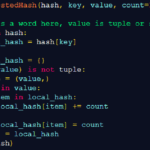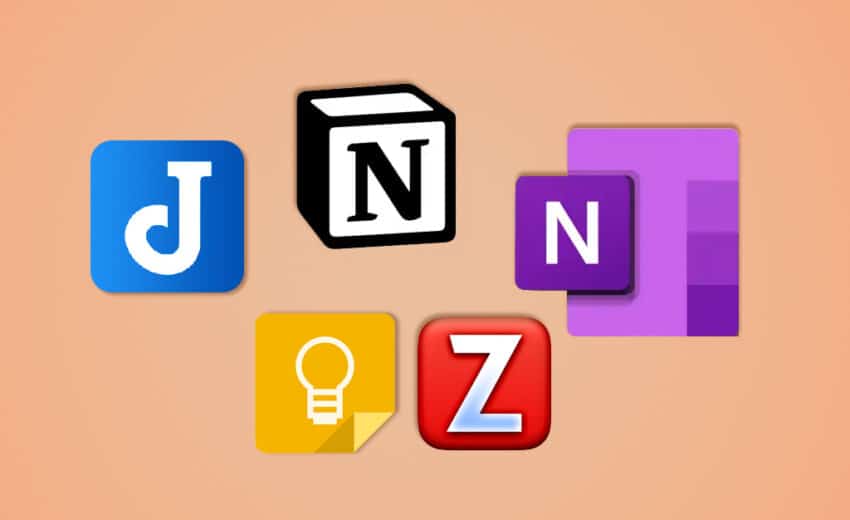
Best note apps for students and laptops are ideal for taking course notes. They’re portable enough to carry with you to every class, they have built-in keyboards and touchpads for fast typing and navigation, you can doodle and sketch with a digital pen, and you can record your lectures with the laptop’s built-in microphone (most of the time, anyway).
But none of that matters if you don’t have a great note-taking app. You’d be severely limited if you only had Notepad, for example. In contrast, you could have near-unlimited flexibility if you had a note-taking app that could draw notes, insert images, attach files, etc.
Furthermore, you’d do best with a note-taking app that gels with how you like to take notes. Whether you need one that’s packed with features, one that’s simple and lightweight, or one that supports collaboration, there’s an app for you — and they’re all mostly free.
Here are the best note-taking apps that’ll supercharge the way you take notes and help you nail your courses.
- Microsoft OneNote — The best overall note-taking app
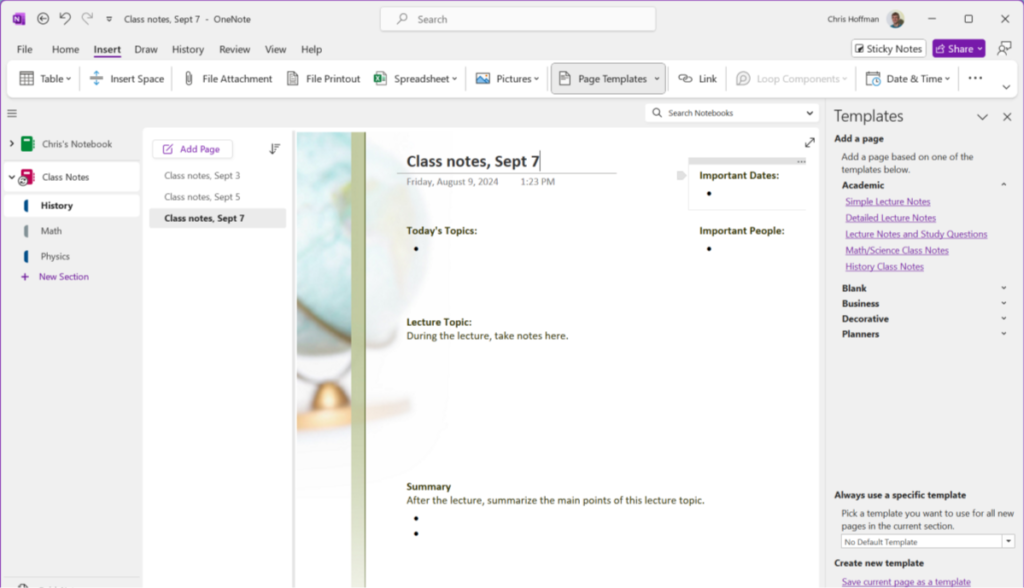
Microsoft OneNote is the top note-taking app for Windows. It’s a free best note app for students and comes included with Windows, but don’t let that fool you: this app is a heavy favorite among people across platforms, including macOS, Android, and iOS.
OneNote lets you create multiple notebooks with multiple sections per notebook and pages per section. Not only is it great for organization, but you can type notes and style them with whatever formatting you like — it’s all as freeform as you want.
Best note apps for students and you can draw notes with a digital pen and you can attach files to individual notes, making it great for jotting down mathematical calculations, sketching diagrams, and making sure various files (e.g., documents, images, presentations) stay clipped to their relevant notes.
Moreover, you can record a lecture in audio format and instantly have it transcribed and attached to a note. You can also record videos, which can come in handy for visual demonstrations and the like.
OneNote still has so many other useful features for students, including powerful search, collaborative editing, a web clipper for your browser, and even a feature that solves simple math equations for you. It also has built-in templates for taking different types of notes.
OneNote is a proper desktop application, by the way. That means it works even when you’re offline — so you can keep taking notes even if your Wi-Fi goes out — then syncs everything with your Microsoft account when you have an internet connection.
OneNote’s biggest weakness is that it’s a little complex. It’s packed with features that aren’t particularly hard to use — especially if you spend a few hours getting acquainted — but it can be a bit much if all you want is simple text notes. I think it’s nice to have the whole toolbox of features available because you never know when you might want to insert images, attach files, or draw diagrams.
- Google Keep — The best simple and lightweight note-taking app
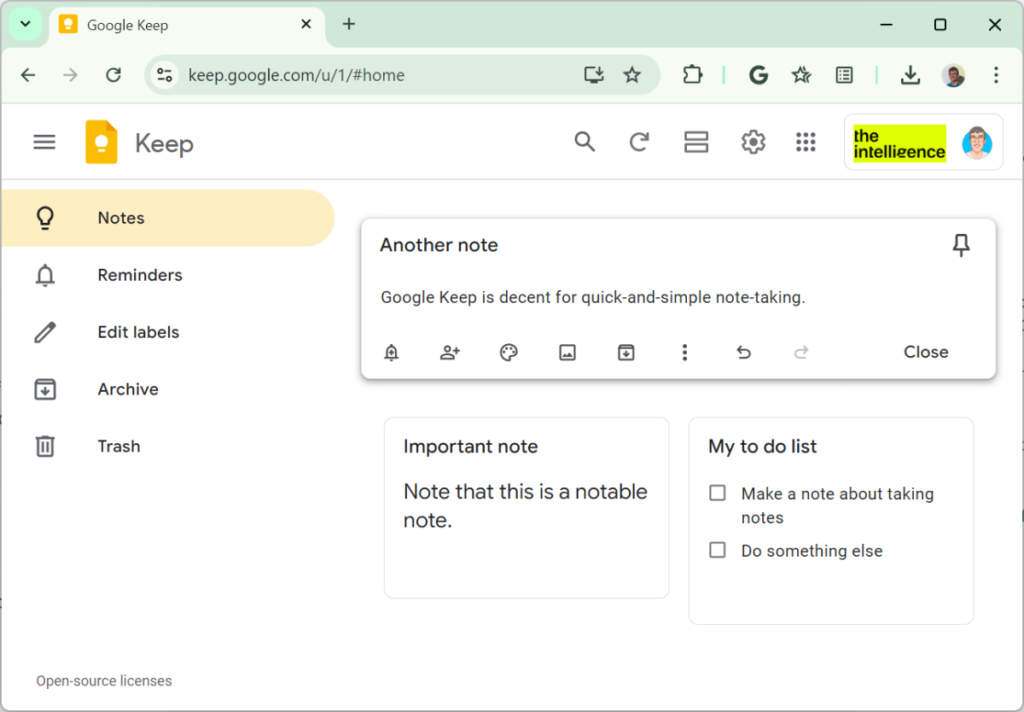
Best note apps for students Google Keep is a convenient, simple, and free app. This is awesome for taking a simple note and turning it into something far more extensive.
Google Keep is best for short and quick “sticky notes,” and it isn’t designed to be a full-blown note-taking app. It does have some useful features, but nowhere near as many as the other apps on this list.
While Google Keep does support collaborative editing, Google Docs is the better collaborative note-taking solution when working with other students. (They’re more likely to be familiar with Google Docs.)
Lastly, Google Keep is just a web app on Windows. It has no offline storage. You can only access it via browser and you need an always-online internet connection to not fall out of sync.
- Notion — The best collaborative note-taking app for complex projects
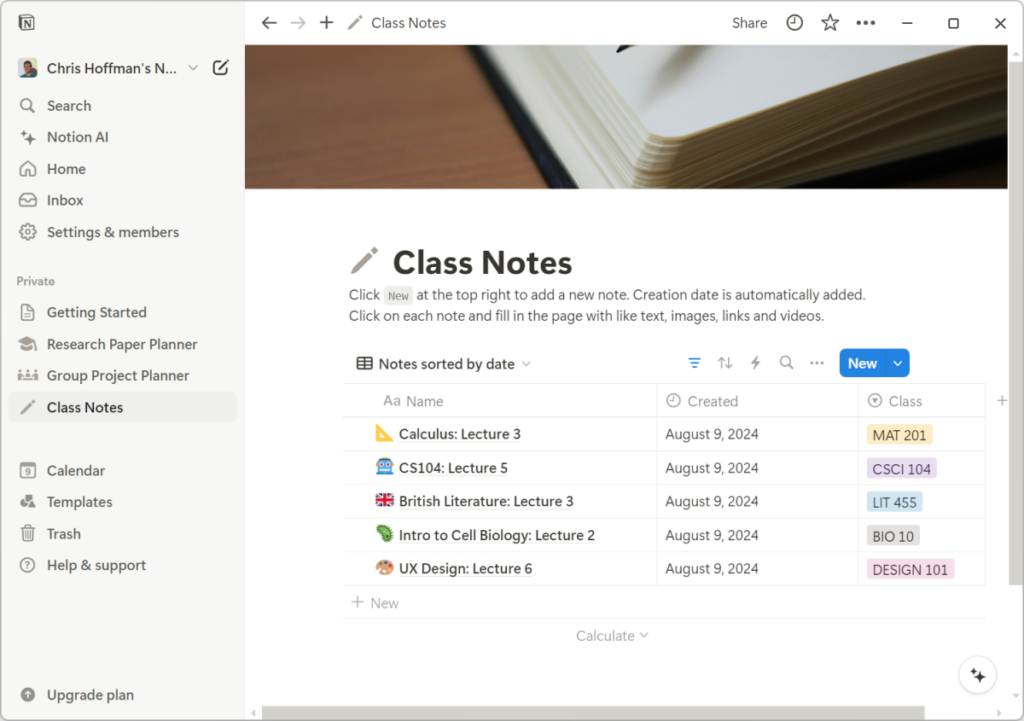
Notion is one of the trendiest note-taking apps right now, and that’s because it isn’t exactly your traditional note-taking app. The notion bills itself as a “connected workspace” — you can use it for everything from tasks and to-dos to comprehensive project management.
The notion is more targeted at teams, but its collaborative design is also perfect for group projects, lab partners, etc. In my experience, Notion is more about organization than mere note-taking. I know some people who swear by Notion for organizing their entire lives beyond school and work.
Related: These free tools help you stay organized better
When you create your free account, Notion will ask what you’re using it for. If you say school, Notion will provide templates that help you get started with class notes, group projects, research papers, and more.
There’s a type of person who falls in love with Notion because it’s very different from conventional note-taking apps like OneNote and Google Keep. (It’s different enough that Microsoft created their own Notion-like collaborative app, named Microsoft Loop.)
Unfortunately, Notion is also fundamentally a web app without local storage. You can download Notion as a Windows app, but it’s the same thing as using the Notion website in your browser. You’ll need an always-online internet connection to access your notes.
As for price, Notion’s basic plan is free — but Notion also offers a free Plus plan upgrade for students “at accredited colleges and universities,” which unlocks features like unlimited file uploads and 30-day edit history.
- Joplin — The best open-source note-taking app worth using
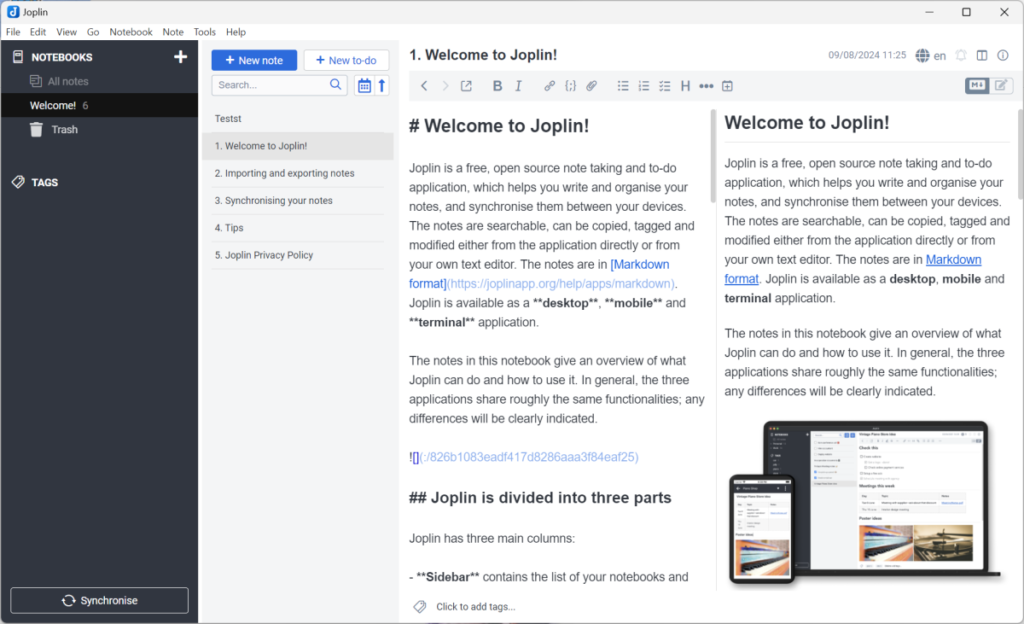
Joplin is the best note app for students capable note-taking application that also happens to be open-source. It’s not a web app masquerading as a desktop app, but that also means it isn’t suitable for Chrome Books. Furthermore, Joplin’s notes don’t sync by default and it’s up to you how you want them to stay synced.
Best note apps for students and most students will likely be happier with the more powerful and feature-rich OneNote. But if you’re looking for the closest open-source alternative to OneNote, Joplin is it.
- Zotero — The best note-taking app for research and annotations

Zotero is the best note app for students the least conventional note-taking app in this roundup. Best note apps for students Like Joplin, and Zotero are completely free and open-source.
While Zotero is more of a reference organizer, the built-in annotations can be quite handy. Check out Zotero’s quick start guide for a more detailed look at its capabilities.
For day-to-day note-taking in class, OneNote is still probably the better option. But for big research projects with lots of references, you may want to keep Zotero by your side.


